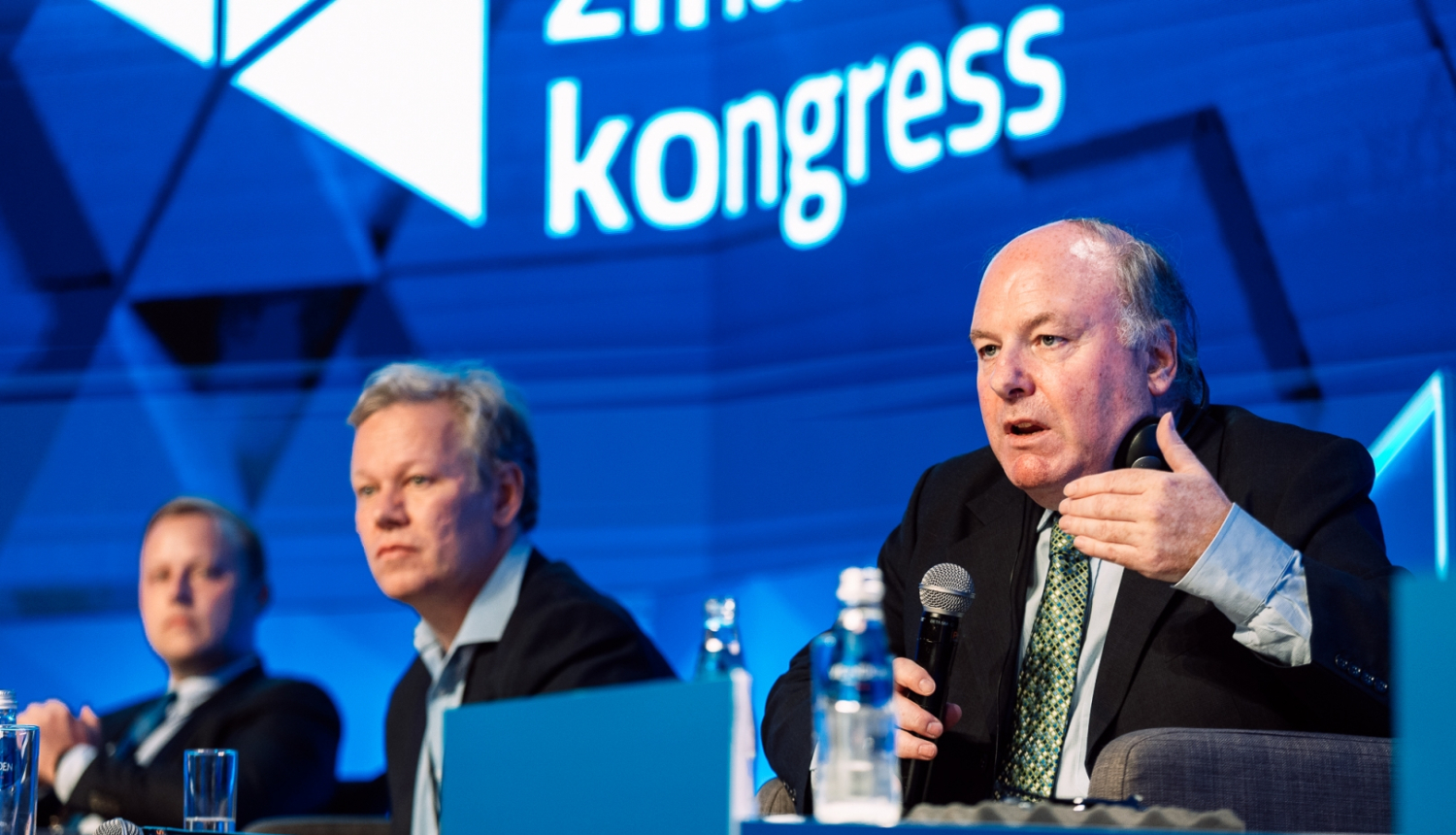It is a well-worn adage that research is the engine of economic development – it constantly creates new technologies and products which are so deeply embedded in people’s lives that they are often taken for granted. With ongoing technological development, there is talk of Industry 4.0 and even Industry 5.0. At the 5th World Congress of Latvian Science "Research Latvia", a discussion on Industry 5.0 gathered scientists and other industry experts to share their insights on what technologies will determine the development of the new industrial paradigm and on the challenges presented new technologies.
At the beginning of the discussion, European Commission Directorate-General for Research and Innovation representative Seán O'Reagain stressed that Industry 5.0 is based on people-centred solutions, the sustainability of industrial production and the resilience of industry. At the end of his speech, O'Reagain wished Latvia to focus on innovative solutions that can also be developed within the framework of the European Union programs, and not on automation.
Raimonds Lapiņš, Deputy State Secretary for Economic Affairs at the Ministry of Economics, recalled that what was considered fundamental science a hundred years ago is today a usable product, and that the path from research to product is getting shorter and shorter. At the same time, he noted challenges which science and industry will have to address, such as labour shortages, security, and the rise of artificial intelligence.
Latvian researchers from various fields provided insights into what is necessary for the development of Industry 5.0. Vice-Rector for Innovation at Riga Technical University (RTU) Liene Briede highlighted the role of economic security and risk tolerance in development, while RTU Professor Oskars Ozoliņš said that it is especially important to look for energy-efficient solutions, including in digital technologies.
Andris Anspoks, Director of the Institute of Solid State Physics of the University of Latvia, stressed the importance of cooperation – both between science and industry, and between people and technology – and Andris Ambainis, Head of the Centre for Quantum Computing Science at the University of Latvia, focused on the importance of research programmes and called for investment in the fields of artificial intelligence and quantum technologies. Kaspars Ozols, Deputy Director for Development and leading researcher at the Institute of Electronics and Computer Science, recalled that each industrial revolution creates new professions, therefore, people's creativity will play an increasing role.
The World Congress of Latvian Scientists has been held in Latvia since 1991, and four congresses have been held thus far, bringing together many participants from both Latvia and abroad. In 2018, 750 participants from 24 countries took part in the 4th World Congress of Latvian Scientists. The main objectives of the Congress are to provide opportunities to exchange views on current scientific problems, to establish and strengthen contacts of Latvian scientists with scientists of Latvian origin from different countries, as well as to draw the attention of the public, media and politicians to the importance of Latvian science and the achievements of scientists.
Photo: Toms Norde, Gatis Orlickis / Ministry of Education and Science
The 5th World Congress of Latvian Scientists "Research Latvia" is implemented within the framework of the ERDF project No. 1.1.1.5/17/I/002 “Integrated national level measures for strengthening interest representations for the research and development of Latvia as part of the European Research Area”.




